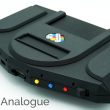If you’ve just got yourself a new MacBook, then congratulations – around 18 million people made investments in Apple’s computers in 2018, so you’re in good company. Macs are user-friendly, intuitive, and come with a whole host of excellent software to help you do what you need to do. For new users, however, Macs can sometimes seem a little daunting in the same way that Windows laptops can.
We’ve put together a helpful guide on 10 things you can do with your new MacBook. Even though this guide focuses on MacBooks, you can also apply some of these tips to Apple’s other Mac family computers including the iMac and the Mac mini. Some of them will be specific to the notebooks, however. Without further ado, here’s our guide on things you should do with your new Mac or MacBook.
- Back it up
Apple’s Time Machine facility makes backing up your Mac’s data easy and quick. To create Time Machine backups, you’ll need an external storage device – a USB drive, an external hard drive, or a Thunderbolt drive, for example. Once you’ve got one, simply connect it and set it as your backup disk. Your Mac will then make automatic hourly backups for 24-hour periods, as well as daily backups for the past month. Not bad, eh?
- Don’t be afraid to ask for support
While Macs are famously not quite as prone to viruses as Windows machines, it is still entirely possible to find your machine infected. Whether you’re struggling with a virus or just need to know how to do something hardware-related, don’t be afraid to hit up a reputable website for Mac support. Even pros didn’t know how to do everything at one stage, and there’s only one way to accrue more knowledge, right?
- Use iCloud
If you’ve got a Mac, then the chances are you’re a user of Apple’s wider ecosystem, which also includes iPhones and iPads. If that’s the case, then you’ll definitely need to start using iCloud. This cloud service syncs all your data across multiple Apple devices, so you’ll always be able to access it no matter where you are. The setup process is simple and easily accessible on new Mac devices.
- Check out Apple Arcade
Apple’s new gaming service, Apple Arcade, is full to the brim with great games. As of macOS Catalina’s release earlier this month, you can access Apple Arcade on your Mac. Data will sync across devices, so you can pick up where you left off when you play on other Apple hardware. This might be the only gaming subscription service you need if you’re an Apple aficionado.
- Make use of Spotlight
The Spotlight feature is perfect for finding anything you might need across your device, but it also works for the web. If you’re a former Windows user, think of it as a replacement for that operating system’s Cortana, only more efficient and less grating (sorry, Windows users). Make yourself familiar with Spotlight, because you’ll grow to depend on it more and more as you use your Mac.
- Check out your MacBook Pro’s Touch Bar
This one sadly only applies if you’ve got a MacBook Pro, but undoubtedly that device’s coolest feature (or one of them, at least) is the touch bar that replaces the traditional laptop function keys. This touch bar can be used for anything from rewind and fastforward controls while video editing to traditional function keys. You can even customise it if you don’t like what’s already on there.
- Talk to Siri
That’s right – everyone’s favourite Apple assistant makes the transition unscathed to Mac devices as well. Holding down Command and Space, or simply clicking the Siri icon in the dock, will bring up your assistant. You can ask Siri to tell you the weather, play you a song, open a document, search the web for something…the list is endless. You’ll come to depend on Siri just like Spotlight.
- Give Windows a shot
Blasphemy! Surely we’re not actually recommending you run Windows on your MacBook or Mac. Well…not exactly. The sad fact is that some programs can only be run on Windows as they don’t have native Mac compatibility. When you run into such a program, you should consider installing Windows on your machine. You can do this either by creating a Windows hard disk partition or by running a virtual machine.
- Check your messages
If you’ve got an iPhone and you’re using iMessage, you can check your messages on your Mac. Pretty cool, right? All you need to do is sign into your iMessage account, which should have your phone number associated with it. Once you’ve done that – and enabled Message Forwarding in the Settings menu of your phone – iMessage on Mac will automatically show you all your messages.
- Use AirPlay
AirPlay is Apple’s built-in way of streaming content to various devices, and you can use it on any device that’s running either iOS or macOS. This means if you’ve got a Mac or an iPhone and you want to mirror it on your Apple TV, it’s a simple question of setting up AirPlay. You can even set it so that only content audio and not system audio plays through the speakers of the recipient device. Not bad!







